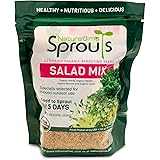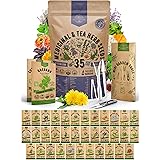U0U 4 Pcak Raised Garden Bed Corner Brackets,6" x 3" x 3" Metal Corner Brackets for Wood,Black Raised Bed Corners with Screws for Vegetable Flower Planter Garden (6" x 3" x 3")
$19.99 (as of 13:25 GMT -05:00 - More infoProduct prices and availability are accurate as of the date/time indicated and are subject to change. Any price and availability information displayed on [relevant Amazon Site(s), as applicable] at the time of purchase will apply to the purchase of this product.)CATMANOR 2 Pack Galvanized Raised Garden Bed Outdoor,Metal Garden Bed for Vegetables,Steel Raised Beds for Gardening,Above Ground Garden Box for Flower-50x20 inch
$45.99 (as of 13:23 GMT -05:00 - More infoProduct prices and availability are accurate as of the date/time indicated and are subject to change. Any price and availability information displayed on [relevant Amazon Site(s), as applicable] at the time of purchase will apply to the purchase of this product.)Composting is a year-round chore that reaps huge benefits. Here are some important tips.
Each year in the spring people venture outdoors to begin planting their gardens and flower beds. The allure of warm, gentle days seems to call out the winter hermits in an act of reseeding the world with beauty and divine scents. One thing that does not make sense is the amount of money spent on commercial fertilizers and compost. Composting yourself is free and makes some of the best fertilizer in the world. Sure, it does take some time but if you start work on it early you can have rich, dark soil by the time planting season comes around.
Composting is environmentally friendly and once you know what can be composted and what cannot, you will be on your way to being eco-friendly. In this article the basics of composting will be covered such as what it actually is technically and how you can begin your own compost heap in your own backyard.
What is composting?
Composting is the process of taking organic material and breaking it down through a variety of chemical and animal processes to achieve fertilizer and plant building material that is both cheap and highly effective. It is very environmentally friendly and is a great way to avoid paying those high costs of bags of fertilizer. You can utilize those leftover food wastes, animal wastes, grass clippings, branches and other organic materials to create a loamy material that will help your plants grow to their maximum potential like no other commercial grade fertilizer possibly can. The best part is that it is free!
What can I use to help the material break down?
If you want your compost heap and material to break down faster you are going to need to keep it aerated, moist and broken into smaller pieces. You can also help break down the material by adding worms and other small insects into the pile that will help eat the organic material. Their waste products are filled with great nutrients for the soil and before long you will have a compost heap that is ready to hit the garden to begin the cycle all over again. It is a circle of life that is a great example of Mother Nature at her finest and shows what recycling can do for the environment.
What can I do with my compost once it is done?
When your compost heap is broken down back into fertilizer you can use it in a variety of ways. You can use it in your garden. You can use it on your lawn and you can use it in your flower beds. Anywhere you use fertilizer you can use your compost material. It is that incredibly versatile and let us not forgets to mention that it is free. That is the best reason of all to compost your organic material.
Can I put my pet’s waste in for composting?
You can put your pet’s droppings into your compost pile but be warned: it will attract animals and is going to smell pretty bad as it begins to break down. If you live in the suburbs this may not be the best idea. Rural areas where you can move the compost heap to a far enough location may be okay but just be prepared for an atrocious smell. Sometimes it’s better to just stick with organic materials such as yard trimmings.














































